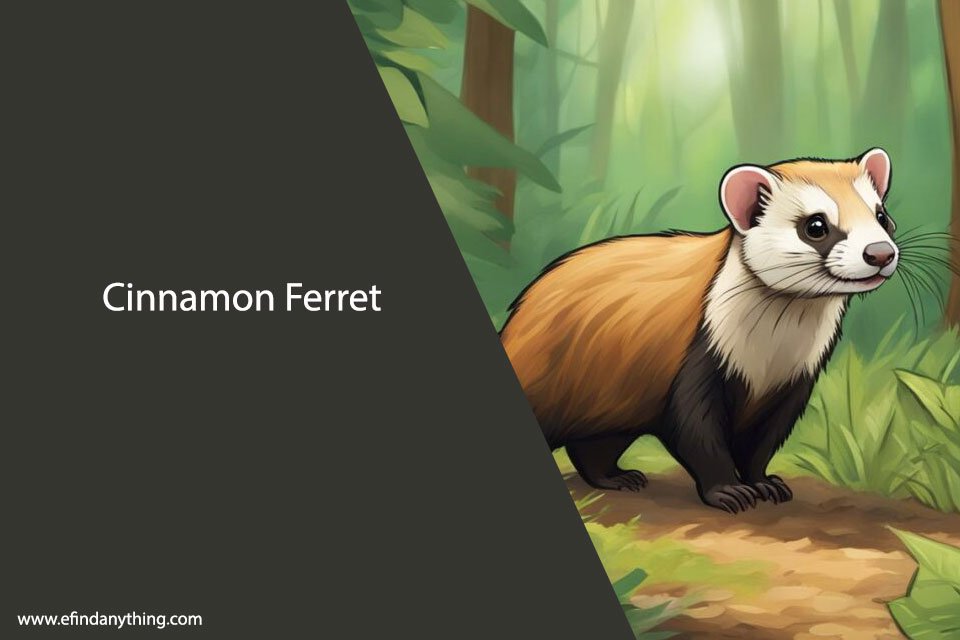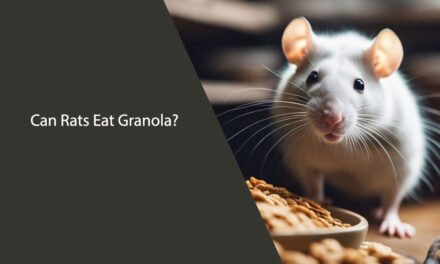Cinnamon ferrets are a unique and fascinating breed of ferret. They are known for their distinctive cinnamon-colored fur, which sets them apart from other ferret breeds. Cinnamon ferrets are also known for their playful and curious personalities, making them a popular choice for pet owners.
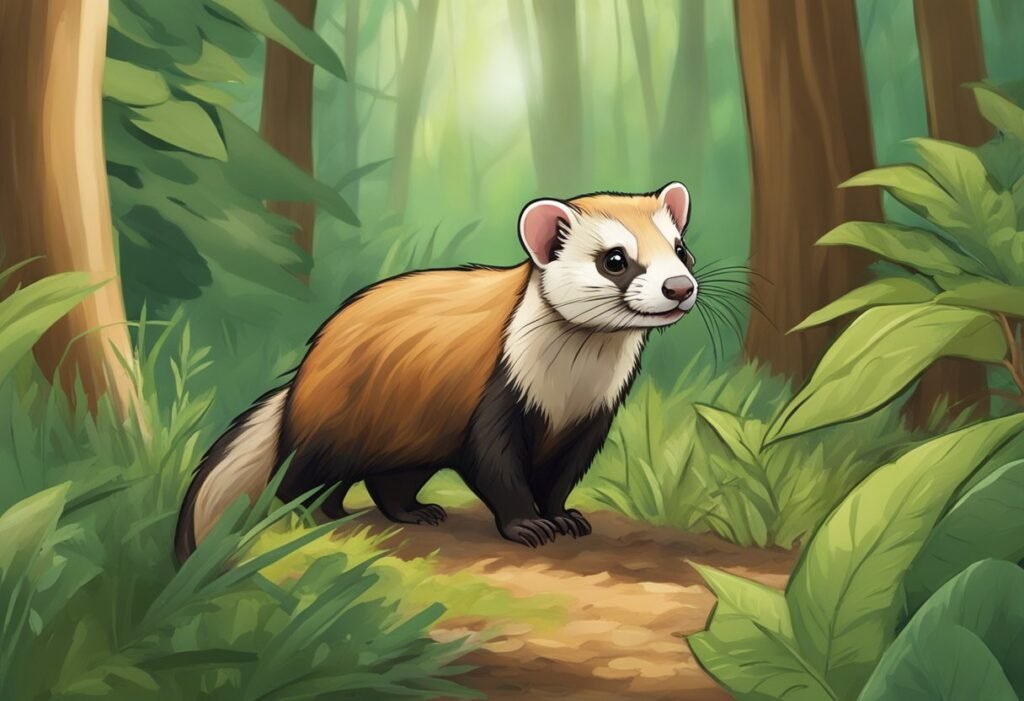
One of the most interesting things about cinnamon ferrets is their genetics. This breed is the result of a recessive gene that causes their fur to have a cinnamon hue. This gene is relatively rare, which is why cinnamon ferrets are not as common as other ferret breeds. However, their unique appearance and charming personalities have made them a beloved pet for many ferret enthusiasts.
If you are considering getting a cinnamon ferret as a pet, it is important to note that they require a lot of attention and care. Ferrets in general are high-maintenance pets, but cinnamon ferrets can be especially demanding due to their high energy levels and inquisitive nature. However, with proper care and attention, cinnamon ferrets can make wonderful and entertaining pets for those who are up for the challenge.
Table of Contents
Cinnamon Ferret: An Overview
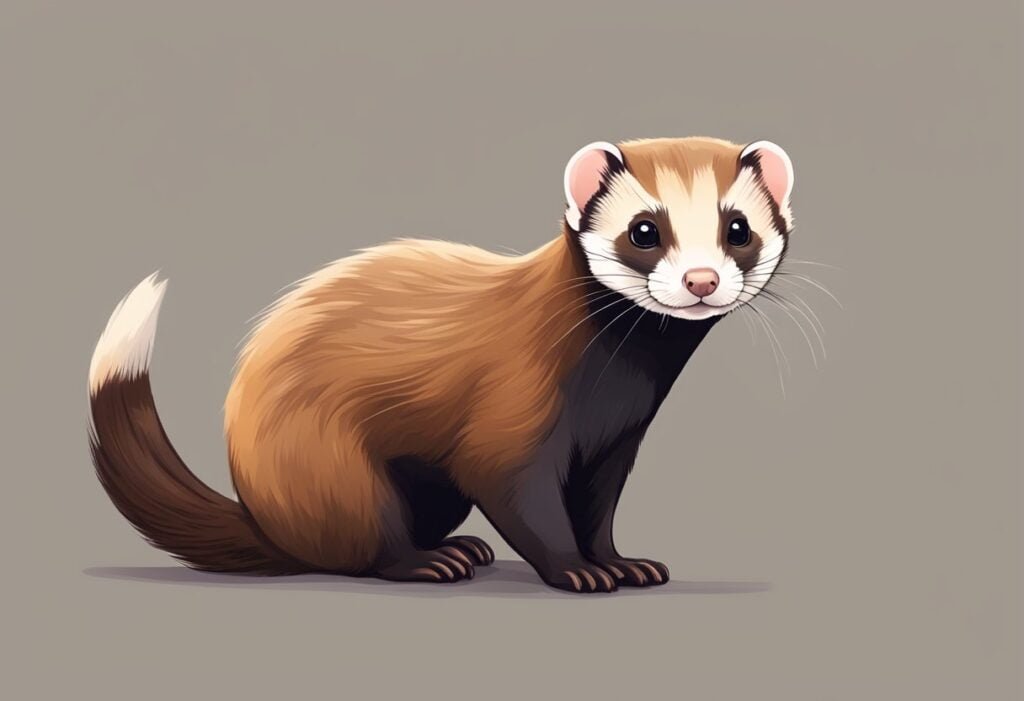
Cinnamon Ferrets, also known as Cinnamon Colored Ferrets, are a popular domesticated animal that is often kept as a pet. In this section, we will provide an overview of the Cinnamon Ferret, including its origin, history, and physical characteristics.
Origin and History
The Cinnamon Ferret is a domesticated animal that originated from the European Polecat. It is believed that the first domesticated ferrets were used for hunting purposes, as they are skilled at catching rodents and other small animals.
Over time, ferrets became popular as pets and were bred for their unique colors and patterns. The Cinnamon Ferret is one of the many color variations that has been developed over the years.
Physical Characteristics
The Cinnamon Ferret is a medium-sized animal that typically weighs between 1.5 and 4 pounds. They have a long, slender body and short legs, which make them agile and fast.
One of the most noticeable characteristics of the Cinnamon Ferret is its fur. As the name suggests, Cinnamon Ferrets have a cinnamon-colored coat that is soft and silky to the touch. They also have a white underbelly and dark eyes.
In terms of temperament, Cinnamon Ferrets are known for being playful and curious. They are social animals and enjoy spending time with their owners. However, they can be mischievous at times and may get into trouble if not supervised properly.
Overall, the Cinnamon Ferret is a popular pet that is loved for its unique appearance and playful personality.
Cinnamon Ferret Behavior

Cinnamon ferrets are known for their playful and curious personalities. They are highly social animals and thrive in the company of other ferrets. In the wild, they live in large groups and work together to hunt for food and protect their territory.
Social Behavior
In captivity, it is important to keep cinnamon ferrets in pairs or small groups to ensure they receive enough social interaction. They are known for their playful nature and enjoy running, jumping, and playing with toys. Cinnamon ferrets are also very vocal and will often make a variety of sounds to communicate with their owners or other ferrets.
Hunting and Feeding Habits
Cinnamon ferrets are carnivores and require a diet high in protein. In the wild, they primarily hunt small rodents and birds. In captivity, they can be fed a diet of high-quality ferret food and occasional treats such as cooked meat or eggs.
Cinnamon ferrets have a strong hunting instinct and enjoy playing with toys that simulate hunting behavior, such as stuffed animals or toys that make noise. They also enjoy digging and burrowing, so providing them with a digging box or tunnel can be a fun and stimulating activity.
Overall, cinnamon ferrets are intelligent and social animals that require plenty of interaction and stimulation to thrive in captivity. By providing them with a suitable diet and environment, owners can enjoy the playful and curious nature of these unique pets.
Caring for a Cinnamon Ferret
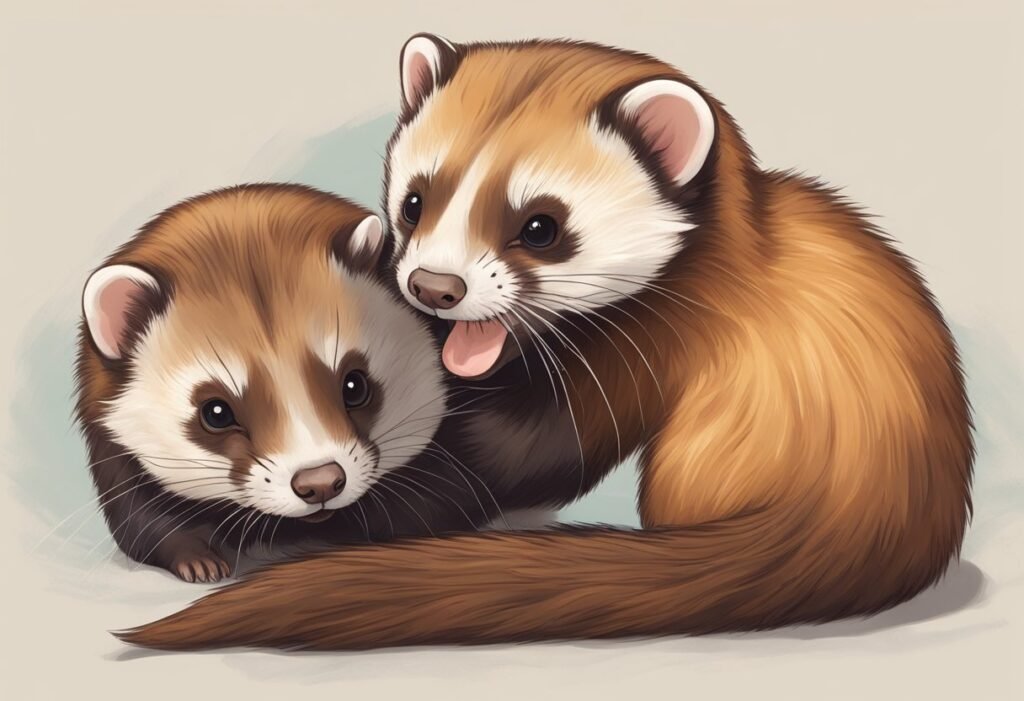
Cinnamon ferrets are adorable and playful pets that require proper care to stay healthy and happy. In this section, we will cover the dietary needs, healthcare requirements, and housing needs of cinnamon ferrets.
Dietary Needs
Cinnamon ferrets require a high-protein diet that is rich in animal-based protein. We recommend feeding your ferret a diet that is at least 32% protein and 18% fat. You can feed them a combination of dry kibble and wet food, but make sure that the dry kibble is high-quality and free of grains and fillers.
In addition to their regular diet, cinnamon ferrets also need access to fresh water at all times. You should provide them with a water bottle or a water dish that is changed daily.
Healthcare Requirements
Cinnamon ferrets require regular veterinary check-ups to ensure that they are healthy and free of any health issues. We recommend taking your ferret to the vet at least once a year for a check-up.
In addition to regular check-ups, cinnamon ferrets also require vaccinations against distemper and rabies. These vaccinations should be given by a licensed veterinarian.
Cinnamon ferrets are also prone to dental issues, so it is important to provide them with dental chews and toys to keep their teeth healthy.
Housing Needs
Cinnamon ferrets require a large cage that is at least 24 inches wide, 24 inches deep, and 18 inches tall. The cage should have multiple levels, ramps, and hiding places to provide your ferret with plenty of space to play and explore.
In addition to a cage, cinnamon ferrets also require daily playtime outside of their cage. You should provide them with a safe and secure play area that is free of hazards and potential escape routes.
Overall, caring for a cinnamon ferret requires a commitment to providing them with a healthy diet, regular healthcare, and a safe and comfortable living environment. With proper care, your cinnamon ferret can live a happy and healthy life.
Legal and Ethical Considerations

When considering owning a cinnamon ferret, there are several legal and ethical considerations to keep in mind.
Firstly, it is important to check with local laws and regulations to ensure that owning a ferret is legal in your area. Some states or countries have restrictions or even outright bans on owning ferrets as pets. It is also important to research any licensing or permit requirements that may be necessary to legally own a ferret in your area.
Secondly, it is important to consider the ethical implications of owning a ferret. Ferrets require a significant amount of time and attention, as well as proper care and nutrition. It is important to ensure that you are able to provide a suitable environment for your ferret to thrive in, including proper housing, exercise, and socialization.
Additionally, it is important to consider the potential impact that owning a ferret may have on other animals and the environment. Ferrets are predators and may pose a threat to small animals such as birds or rodents. It is important to ensure that your ferret is properly supervised and contained to prevent any harm to other animals.
Overall, owning a cinnamon ferret can be a rewarding experience, but it is important to carefully consider the legal and ethical implications before making the decision to bring one into your home.
Frequently Asked Questions
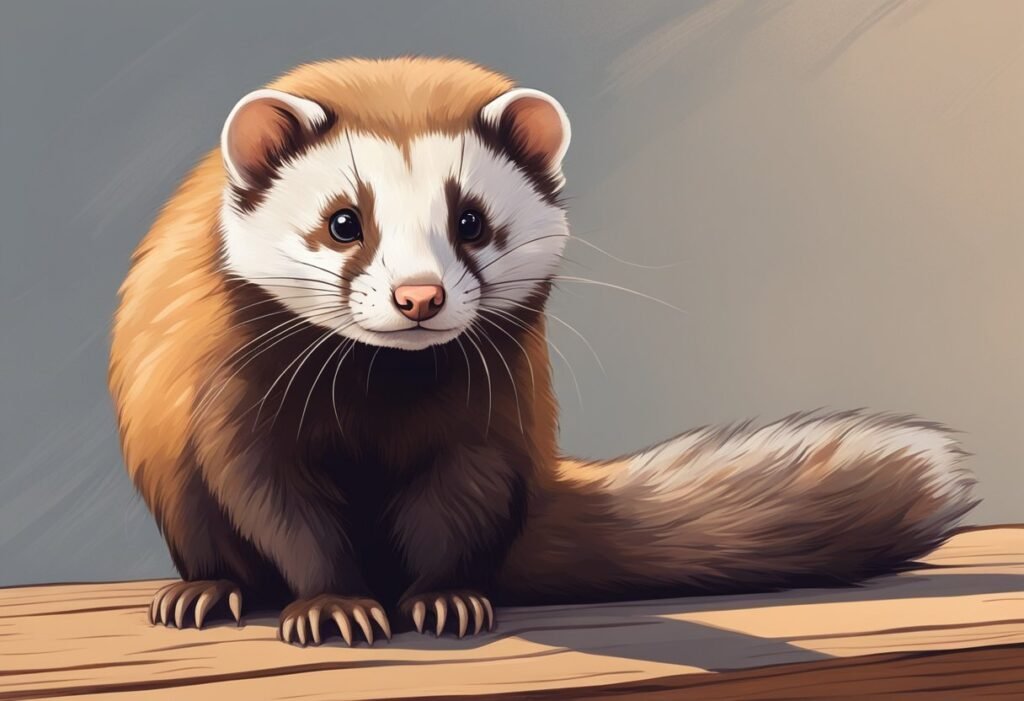
What are the different colors of ferrets?
Ferrets come in a variety of colors, including cinnamon, sable, silver, albino, and more. Cinnamon ferrets have a reddish-brown coat with a white underbelly and dark eyes.
What is the average cost of a cinnamon ferret?
The cost of a cinnamon ferret can vary depending on where you live and where you purchase it from. On average, a cinnamon ferret can cost anywhere from $100 to $300.
What are some interesting facts about cinnamon ferrets?
Cinnamon ferrets are known for their playful and curious personalities. They are also very intelligent and can be trained to do tricks. In addition, they have a keen sense of smell and are excellent hunters.
What are some unique names for cinnamon ferrets?
Some unique names for cinnamon ferrets include Cinnamon, Nutmeg, Ginger, Rusty, and Autumn.
What is the difference between cinnamon and champagne ferrets?
Cinnamon ferrets have a reddish-brown coat with a white underbelly and dark eyes, while champagne ferrets have a beige coat with a white underbelly and pink eyes.
What are some common health issues for albino ferrets?
Albino ferrets are more prone to health issues such as deafness, eye problems, and skin cancer due to their lack of pigment. It’s important to take extra care of albino ferrets and provide them with regular veterinary checkups.

